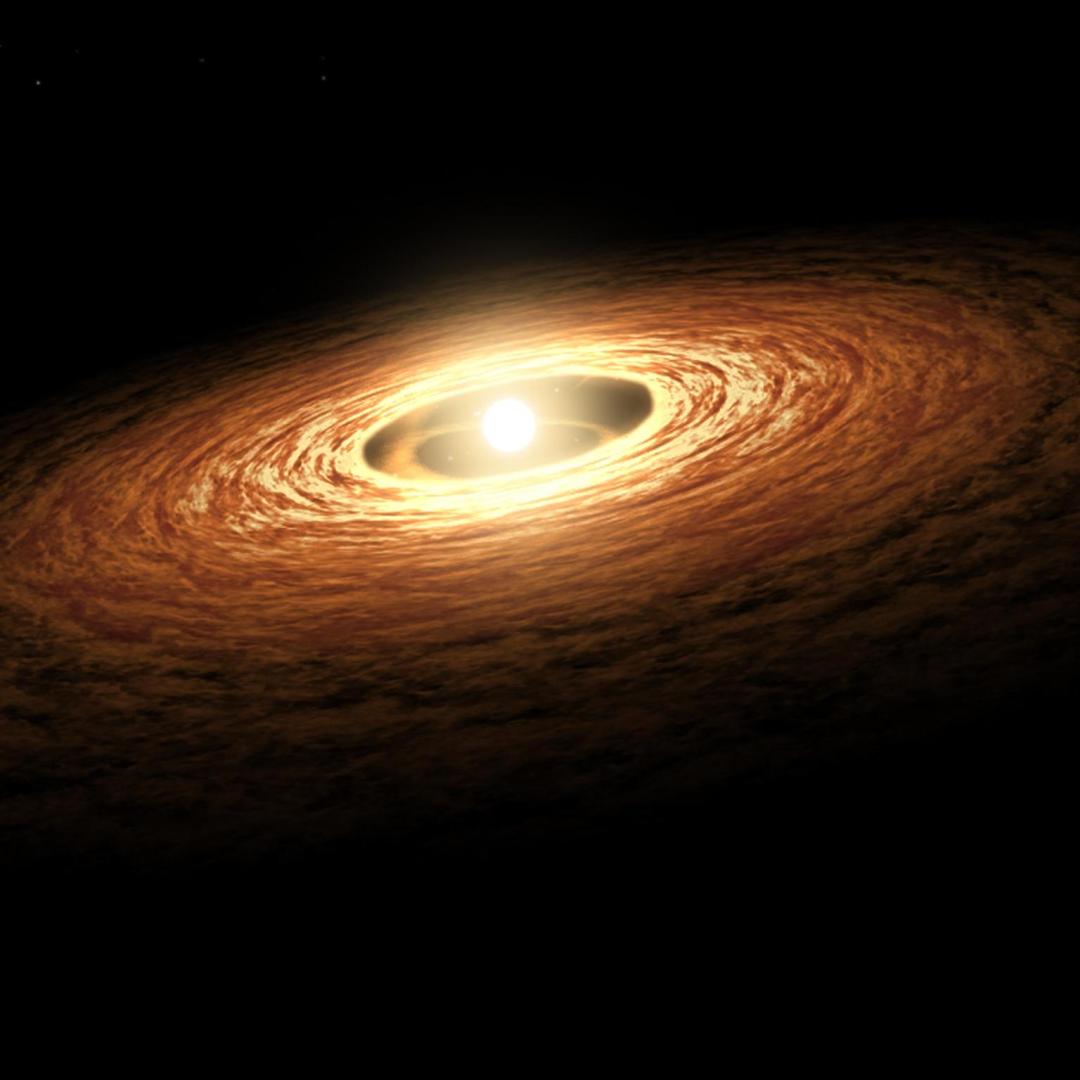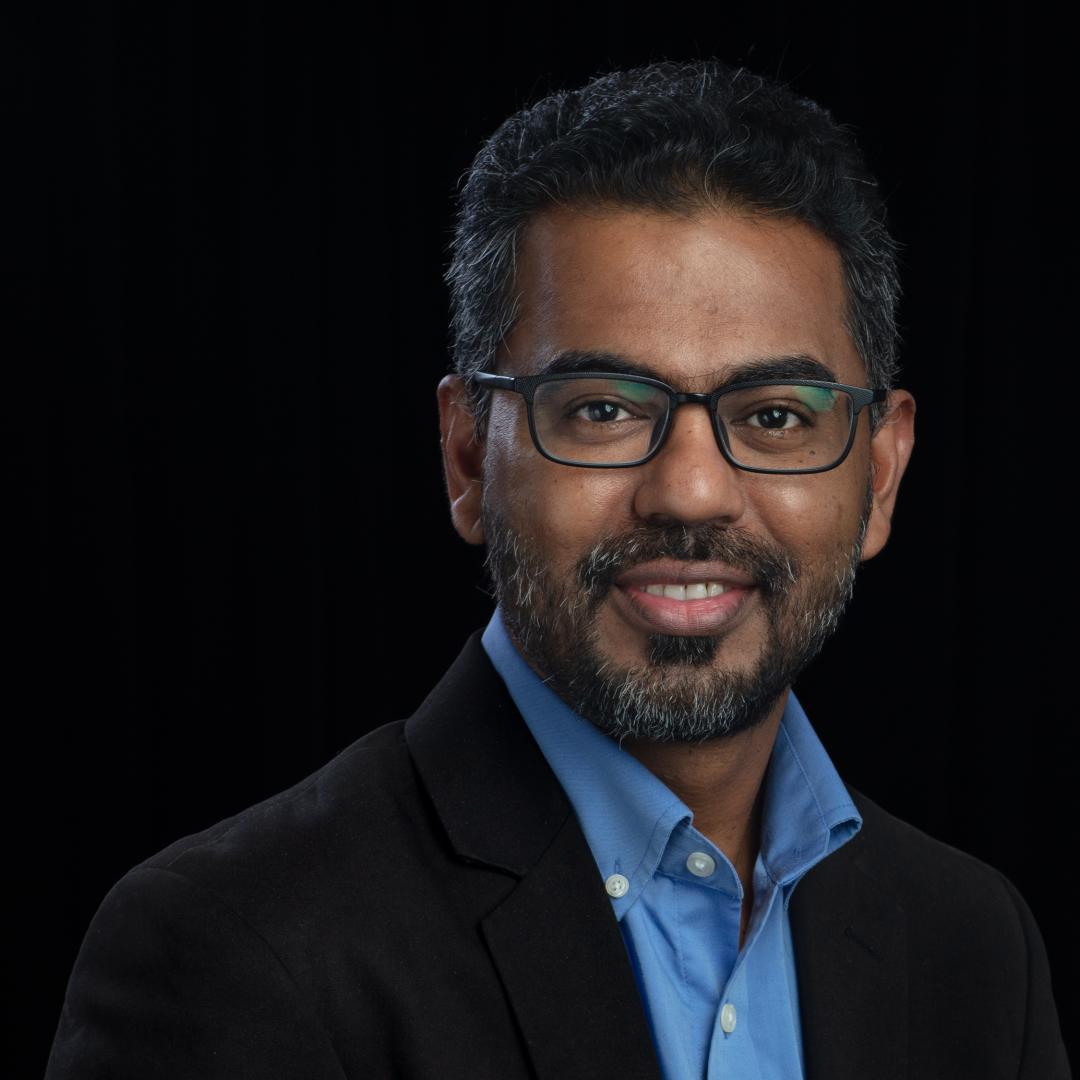
Filter News
Area of Research
- Biology and Environment (15)
- Biology and Soft Matter (1)
- Clean Energy (17)
- Electricity and Smart Grid (1)
- Functional Materials for Energy (1)
- Fusion and Fission (1)
- Materials (3)
- Materials for Computing (2)
- National Security (3)
- Neutron Science (3)
- Quantum information Science (5)
- Supercomputing (15)
News Type
News Topics
- (-) Decarbonization (49)
- (-) Quantum Science (34)
- 3-D Printing/Advanced Manufacturing (59)
- Advanced Reactors (13)
- Artificial Intelligence (56)
- Big Data (31)
- Bioenergy (57)
- Biology (66)
- Biomedical (33)
- Biotechnology (12)
- Buildings (25)
- Chemical Sciences (37)
- Clean Water (14)
- Climate Change (57)
- Composites (12)
- Computer Science (103)
- Coronavirus (21)
- Critical Materials (5)
- Cybersecurity (20)
- Education (1)
- Emergency (2)
- Energy Storage (44)
- Environment (118)
- Exascale Computing (29)
- Fossil Energy (4)
- Frontier (28)
- Fusion (39)
- Grid (28)
- High-Performance Computing (56)
- Hydropower (5)
- Irradiation (1)
- Isotopes (35)
- ITER (3)
- Machine Learning (24)
- Materials (74)
- Materials Science (66)
- Mathematics (7)
- Mercury (7)
- Microelectronics (2)
- Microscopy (28)
- Molten Salt (2)
- Nanotechnology (28)
- National Security (47)
- Net Zero (9)
- Neutron Science (59)
- Nuclear Energy (68)
- Partnerships (24)
- Physics (36)
- Polymers (13)
- Quantum Computing (23)
- Renewable Energy (1)
- Security (14)
- Simulation (36)
- Software (1)
- Space Exploration (13)
- Statistics (1)
- Summit (33)
- Sustainable Energy (55)
- Transformational Challenge Reactor (4)
- Transportation (37)
Media Contacts
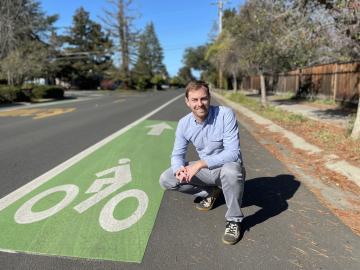
David McCollum is using his interdisciplinary expertise, international networks and boundless enthusiasm to lead Oak Ridge National Laboratory’s contributions to the Net Zero World initiative.
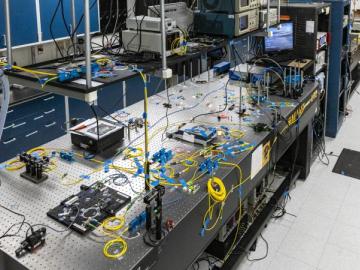
A rapidly emerging consensus in the scientific community predicts the future will be defined by humanity’s ability to exploit the laws of quantum mechanics.
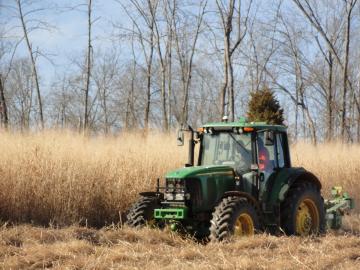
Energy and sustainability experts from ORNL, industry, universities and the federal government recently identified key focus areas to meet the challenge of successfully decarbonizing the agriculture sector
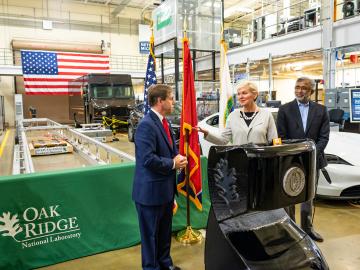
Energy Secretary Jennifer Granholm visited ORNL on Nov. 22 for a two-hour tour, meeting top scientists and engineers as they highlighted projects and world-leading capabilities that address some of the country’s most complex research and technical challenges.
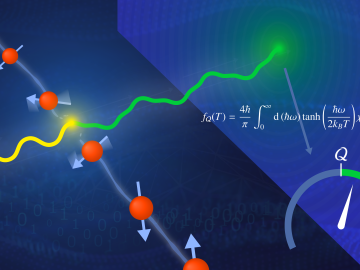
A team led by the U.S. Department of Energy’s Oak Ridge National Laboratory demonstrated the viability of a “quantum entanglement witness” capable of proving the presence of entanglement between magnetic particles, or spins, in a quantum material.
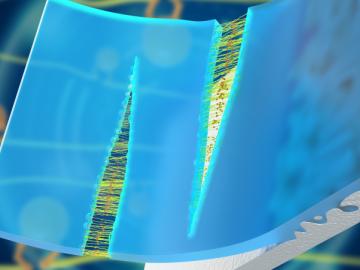
Research teams from the Department of Energy’s Oak Ridge National Laboratory and their technologies have received seven 2021 R&D 100 Awards, plus special recognition for a COVID-19-related project.
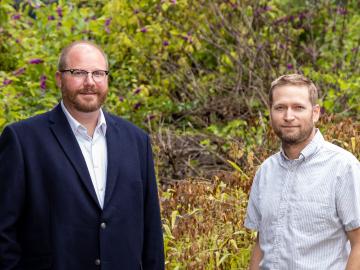
Of the $61 million recently announced by the U.S. Department of Energy for quantum information science studies, $17.5 million will fund research at DOE’s Oak Ridge National Laboratory. These projects will help build the foundation for the quantum internet, advance quantum entanglement capabilities — which involve sharing information through paired particles of light called photons — and develop next-generation quantum sensors.
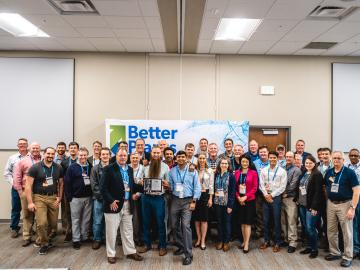
As the United States transitions to clean energy, the country has an ambitious goal: cut carbon dioxide emissions in half by the year 2030, if not before. One of the solutions to help meet this challenge is found at ORNL as part of the Better Plants Program.
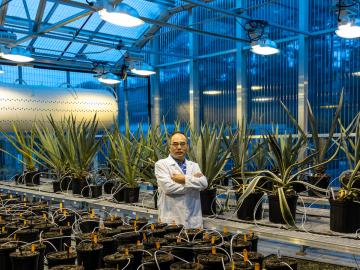
Scientists at ORNL have discovered a single gene that simultaneously boosts plant growth and tolerance for stresses such as drought and salt, all while tackling the root cause of climate change by enabling plants to pull more carbon dioxide from the atmosphere.
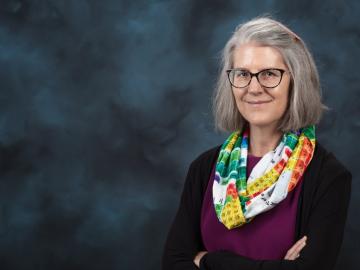
Deborah Frincke, one of the nation’s preeminent computer scientists and cybersecurity experts, serves as associate laboratory director of ORNL’s National Security Science Directorate. Credit: Carlos Jones/ORNL, U.S. Dept. of Energy


